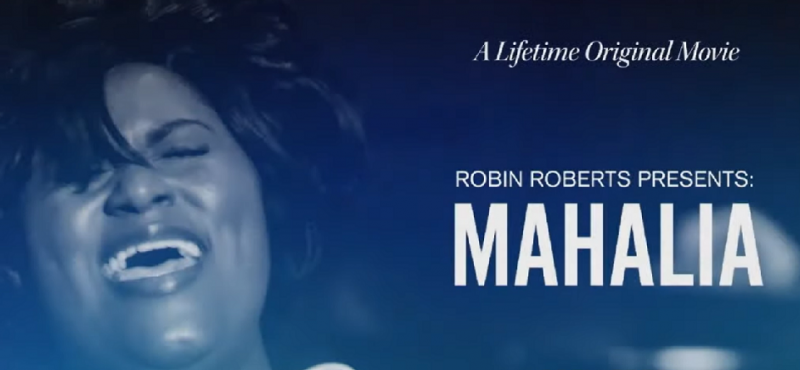TV and media play an influential role in our society, and it’s played a significant role in helping to eradicate the systemic racism rooted in America’s history. April 4th marks 53 years since the assassination of Martin Luther King, Jr., and it’s no coincidence that Lifetime decided to release its new biopic, “Robin Roberts Presents: Mahalia,” the very same weekend.
America continues to wrestle with a reckoning over racial injustice even decades after the Baptist minister led a civil rights movement. This new film aims to educate audiences and rally efforts around racial equality through the retelling of the iconic Black gospel singer, Mahalia Jackson, who was also a personal friend of the family of Martin Luther King, Jr.
Who was Mahalia Jackson?
Jackson established a successful singing career during a time of deep racial segregation in American history. She was also a civil rights activist who sang at rallies, including at the March on Washington in 1963 alongside Martin Luther King, Jr. “[The film] explores her struggle to just be the best person that she can be on the planet, and that’s something all of us can learn from. So, I was looking for that universal appeal,” said the film’s director, Kenny Leon, at the Television Critics Association winter press tour.
“Mahalia” spans four decades of Jackson’s life, and through the retelling of her story, the biopic seeks to inform viewers of the issues and challenges affecting the Black community over those 40 years. The film couldn’t be more timely as Black Americans continue to face many of the same obstacles today as portrayed in the film.
“I wanted it to speak to Americans during our time of COVID, our time of pandemic, our time of racial challenges in our country,” said Leon. “Racism exists. We need to do something about it, and I’m proud to be in that army to continue to fight.”
Mahalia’s Story and the Bigger Picture
To prepare to make the film and to truly capture what Jackson meant to so many people, Leon read book after book about Jackson’s life, Black theater in the United States, the Tuskegee Airmen, and the works of Black writer James Baldwin. “So when people see this they will, of course, want to go and read more about her, but not just about her, about people that lived in the 1920s, 1930s, and 1940s,” said Leon.
Robin Roberts, the “Good Morning America” anchor who teamed up with Lifetime to produce the film, shared the incredible undertaking it was to bring Jackson’s story to the screen and to ensure the story spoke truthfully to the culture and ambiance at that point in time. This included finding the right person to play Jackson.
“I was like, ‘Who could play Mahalia? That slowed everything down. That’s somebody that I grew up with. My mother went to Howard University, and she was in the choral group … And I remember that iconic black and white picture of Mahalia, the big face and looking up. And I remember we had an old record player and she was always on it. So when Kenny said, ‘Danielle Brooks,’ … I get chills all over again just thinking about it … but that’s when we knew,” said Roberts.
Finding the Right Talent
Danielle Brooks, known for her role in the Broadway production of “The Color Purple,” turned out to be the perfect blend of actress and singer that Roberts and the Lifetime crew were looking for.
Roberts also shared that the script for the film was a labor of love. As the daughter of a Tuskegee Airman, and as someone who was born in Tuskegee, Alabama, Roberts is very familiar with the Southern dialect of the time period among people of color. And because of this, she aimed for authenticity with the dialogue. Earlier versions of the script didn’t quite reflect what Mississippi or Southerners “should sound like and talk like, especially people of color. And I wasn’t having that. There is a flavor to it and it’s one that I’m very proud of. It was very important to me to get the right tone,” said Roberts.
On taking on the role of Mahalia Jackson, Brooks commented, “I’m a very proud Southern woman. I come from South Carolina where Viola Davis came from, where Chadwick Boseman came from. I feel like I have a responsibility to match them. And yeah, it’s really an honor to get to tell this African-American story of what Kenny has described before as an ordinary woman who can do extraordinary things.”
Brooks added, “I think we have to continue to remind people of … not just about the power of Southerners, but of Black women. What we add to the fabric of America, where we come from: the Michelle Obamas, the Oprahs, the Tarana Burkes, and the list goes on. I’m glad to get to tell and remind people of that because people really don’t know Mahalia Jackson. And they should.”
To learn more about diversity in TV and how Beyond advocates for inclusive programming, join Beyond and keep tabs on new content from your favorite TV networks.
